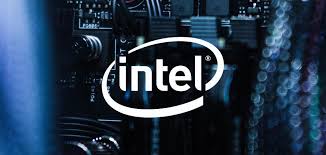Intel To Buy Artificial Intelligence Chipmaker, Habana Labs For $2 Billion

Yesterday, Intel (INTC) issued a statement stating that it had picked up Israeli AI chipmaker, Habana Labs. The deal which is valued at around $2 billion, is the latest piece of some heavy investments in artificial intelligence that include names such as Nervana Systems and Movidius. The purchase is aimed at making Intel’s offerings essential to some of the biggest buyers of silicon and fending off rising competitors. Companies such as Alphabet Inc.’s Google and Amazon.com Inc.’s AWS are increasingly designing their own chips to manage the explosion of information flowing through their data centers using techniques such as machine learning. Intel Capital was previously an investor in Habana.
Habana announced in July this year that its Gaudi AI training
processor, which the Tel Aviv startup promised was capable of beating GPU-based
systems numerous times. The company has been rumoured to be a target for an Intel
acquisition for a while now, as Intel looks to get out in front of the AI
market. The company clearly doesn’t want to repeat past mistakes like missing
the boat on mobile.
A report by TechCrunch says the strategy looks like it just
may pay off, giving Intel a marked advantage in a category it notes will be
worth around $24 billion by 2024. In 2019 alone, Intel notes, the company
expects to generate in excess of $3.5 billion in “AI-driven revenue,” a 20%
increase over the year prior.
Executive Vice President of Intel, Navin Shenoy said in a
release, “This acquisition advances our AI strategy, which is to provide
customers with solutions to fit every performance need from the intelligent
edge to the data center. More specifically, Habana turbo-charges our AI
offerings for the data center with a high-performance training processor family
and a standards-based programming environment to address evolving AI
workloads.”
For the meantime, it
is expected that Intel will operate Habana as an independent business unit,
keeping its current management team on board, with operations still primarily
based in Israel and Habana chairman, Avigdor Willenz will stay on to give advise
to the companies. After the successful deal, Habana will remain based in
Israel, where Intel also has operations and investments, the company said.
Navin Shenoy further said, “This is an early-stage market
that’s growing incredibly fast. At this point, we have a relatively small share.
We’re going to be aggressive going after this. The market for the new way of
handling data is only just getting going and represents a huge opportunity for
the industry. While three-year-old Habana has only just delivered its first
chip, Intel saw the chance to acquire a pool of talented engineers and jumped
at it."
Habana’s products are aimed specifically at large data
centers where they chain together other semiconductors to create more powerful
processing capabilities and the company currently has about 180 employees.


Be the first to comment!
You must login to comment